If you’ve been wondering why your Bearded Dragon isn’t growing, you’re not alone. In this article, we’ll explore 9 common causes for a Bearded Dragon’s stunted growth. From inadequate nutrition to parasites, there are many potential reasons why your Bearded Dragon isn’t growing as it should. With the help of a qualified reptile veterinarian, you can get to the bottom of the problem and get your Bearded Dragon back on track.
1 – You’re Not Feeding It Enough
Bearded dragons also need a source of calcium, such as calcium powder, to help them grow properly. If your bearded dragon isn’t growing, it could be because you’re not feeding it enough. If you’re not sure how much to feed your bearded dragon, talk to your veterinarian. A healthy diet for a bearded dragon includes a variety of live foods, such as crickets, mealworms, and waxworms.
2 – Problems with Feeding the Bearded Dragon a Balanced Diet
A bearded dragon’s diet should consist of a variety of insects, vegetables, and fruits. However, there are a few problems that can occur when feeding your bearded dragon a balanced diet.
Another problem is that some vegetables and fruits can be high in oxalates, which can bind to calcium and prevent your bearded dragon from absorbing it. One problem is that bearded dragons may not be able to digest all the nutrients from their food if they are not eating a variety of different insects.
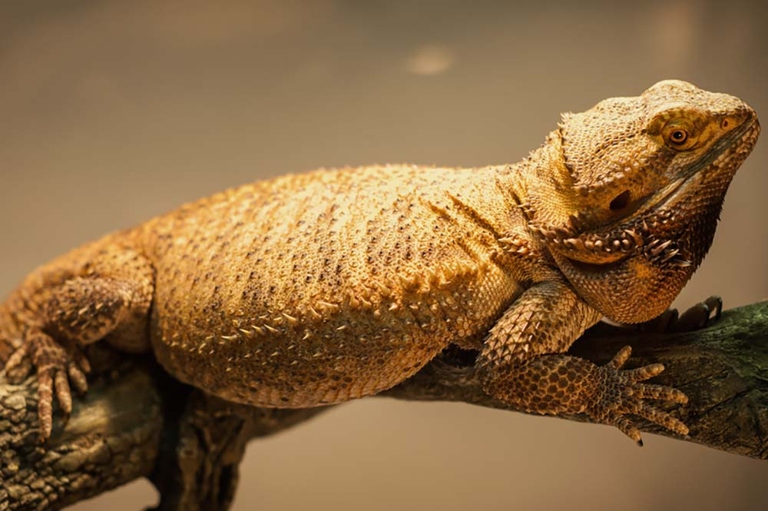
If you are concerned that your bearded dragon is not getting the nutrients they need, talk to your veterinarian about supplementing their diet.
3 – Are You Giving Your Bearded Dragon Calcium Supplements?
Calcium is an important nutrient for bearded dragons, and it helps them grow and develop properly. If you have a bearded dragon, you may be wondering if you should give them calcium supplements.
First, consider their diet. If they are eating a variety of calcium-rich foods, they may not need supplements. There are a few things to consider when deciding whether or not to give your bearded dragon calcium supplements.
Second, consider their age. Young dragons need more calcium than adults, so they may benefit from supplements.
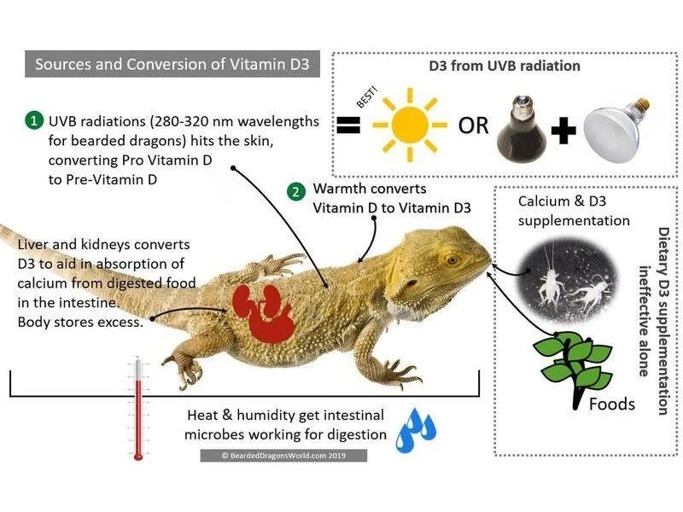
Finally, talk to your veterinarian. They can help you determine if your bearded dragon needs calcium supplements and, if so, what kind and how much to give.
4 – Your UVB Setup Is Wrong
If your bearded dragon isn’t growing, it could be because your UVB setup is wrong. Here are four ways to tell if your UVB setup is incorrect:
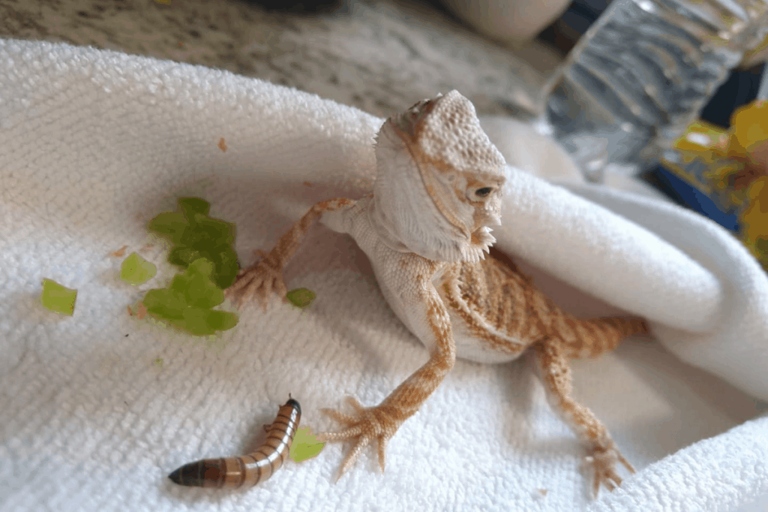
1. Your UVB light is too far away from your bearded dragon.
Your UVB light isn’t strong enough. 2.
3. You’re not using a proper UVB bulb.
You’re not providing enough UVB exposure. 4.
Your bearded dragon needs UVB light to stay healthy and grow properly. If you suspect that your UVB setup is incorrect, make sure to fix it as soon as possible.
5 – Problems with the Tank Temperature
If your bearded dragon’s tank is too cold, it can cause a number of problems. Your dragon may not be able to digest its food properly, which can lead to malnutrition. If your dragon is frequently cold, it may also develop respiratory problems. To keep your dragon healthy and growing, make sure its tank is warm enough. Additionally, cold temperatures can make your dragon sluggish and less active, which can impede its growth.
6 – Is the Tank Too Small?
He may also become aggressive towards other dragons in the tank. If you’re not sure if your tank is big enough, ask your veterinarian for help. As your bearded dragon grows, you’ll need to provide a larger home for him. A 20-gallon tank is a good size for a juvenile, but an adult dragon will need a 40-60 gallon tank. If your tank is too small, your dragon may become stressed and stop eating.
7 – Could Your Bearded Dragon Have Parasites?
Pinworms are tiny, white worms that live in the intestines of reptiles. If you think your bearded dragon has pinworms, take them to the vet for a diagnosis and treatment. There are a few parasites that can infect bearded dragons, but the most common is the pinworm. If your bearded dragon has pinworms, you may notice them in their stool or around their anus. They are not harmful to humans, but can cause problems for bearded dragons. Pinworms can cause weight loss, diarrhea, and anemia.
8 – Living with Another Bearded Dragon
If they’re kept in the same tank, they may fight for dominance. If you have two bearded dragons, it’s important to make sure they have their own space. They should have separate tanks with plenty of room to move around.
Bearded dragons are social creatures and do best when they have another bearded dragon to interact with. If one is much larger than the other, the smaller one may get bullied. If you have two bearded dragons, they should be the same size.
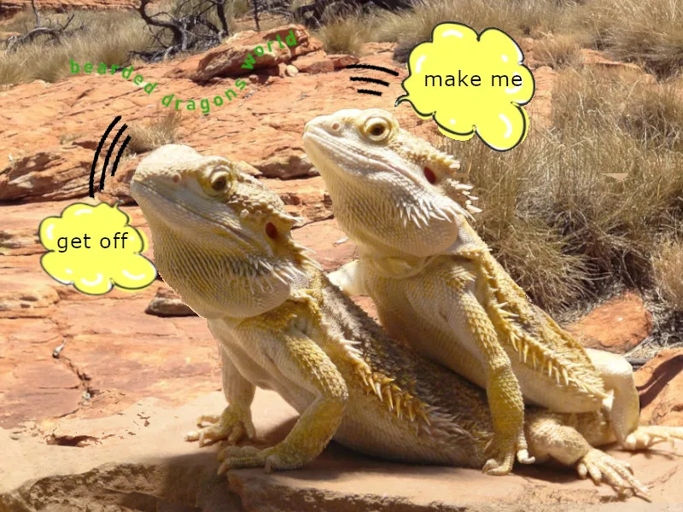
If you’re thinking about getting a second bearded dragon, do your research first. They each need a warm basking spot, a hiding spot, and a large tank with plenty of room to roam. Make sure you have the time and space to care for two dragons.
9 – Appetite Issues
Another possibility is that they are not absorbing the nutrients from their food properly. Finally, some bearded dragons simply have a slower metabolism and will grow more slowly than others. Bearded dragons need a diet that is high in protein, so make sure they are getting enough of the right food. If you are concerned about your bearded dragon’s growth, talk to your veterinarian. One is that they may not be getting enough food. This can be due to a number of things, including parasites, stress, or a lack of vitamins and minerals in their diet. If your bearded dragon isn’t growing, there are a few potential causes.
How Big Should the Bearded Dragon Be?
Bearded dragons are a type of lizard that is native to Australia. They are popular pets because of their friendly nature and their ability to be trained. Bearded dragons can grow to be 2-3 feet long and can live for up to 20 years.
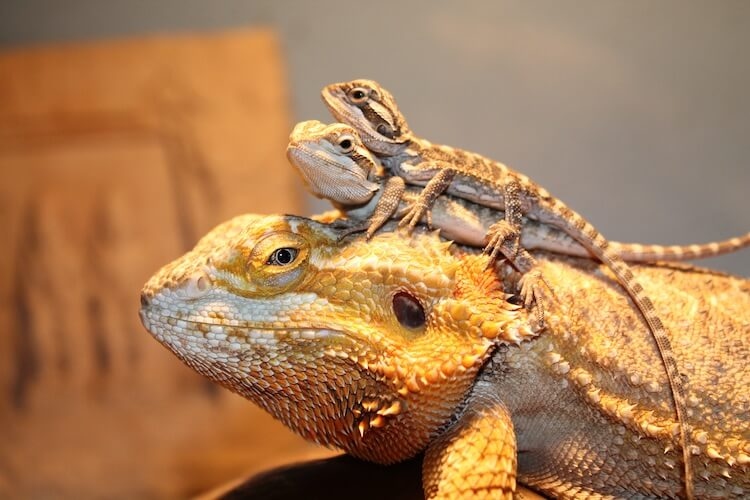
There are a few things that can cause a bearded dragon to stop growing. This vitamin is essential for bone growth and health. A lack of vitamin D3 can be caused by not enough sunlight or not enough calcium in the diet. One common cause is a lack of vitamin D3.
These tiny creatures can steal nutrients from the lizard, preventing it from growing to its full potential. Parasites can be treated with medication, but it is important to catch them early. Another common cause of stunted growth in bearded dragons is parasites.
If your bearded dragon is not growing as fast as you would like, talk to your veterinarian. They can help you figure out what is causing the problem and how to fix it.
Frequently Asked Questions
1. What are some common causes of a bearded dragon not growing?
2. Why isn’t my bearded dragon growing as fast as I expected?
3. How can I tell if my bearded dragon is healthy if it’s not growing?
4. At what age do bearded dragons stop growing?
5. What should I do if my bearded dragon isn’t growing?
1. Some common causes of a bearded dragon not growing include poor nutrition, dehydration, and stress.
2. Bearded dragons may not grow as fast as expected if they are not receiving enough food or water, or if they are experiencing stress.
3. A healthy bearded dragon should have a healthy appetite, be active, and have a smooth, shiny skin.
4. Most bearded dragons will stop growing by the time they are 2 years old.
5. If a bearded dragon is not growing, it is important to take them to a veterinarian to rule out any health problems.
Final thoughts
There are a number of potential reasons why your bearded dragon may not be growing. If you are concerned about your pet’s health, it is best to consult with a veterinarian to rule out any medical causes. Some common reasons for stunted growth include inadequate nutrition, inadequate lighting, and improper temperature. By ensuring that your bearded dragon has the proper care and environment, you can help them to reach their full potential.
